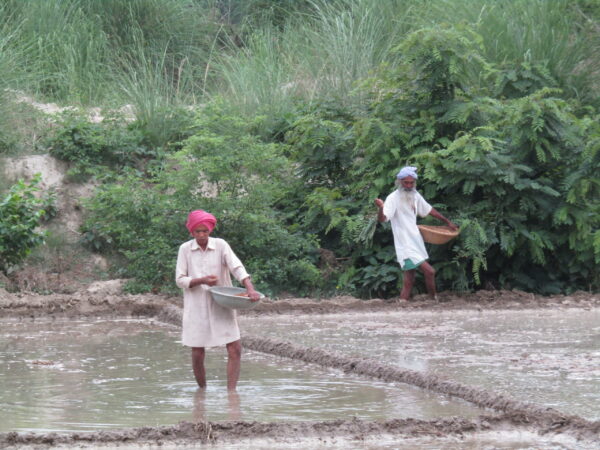- An activity which serves as one’s regular source of livelihood is called –
(1). Life process (2).play
(3).occupation (4).business
2. A system of production on which human beings depend to survive is called as –
(1).business (2).agriculture
(3).work (4).industry
3. Play is motivated by –
(1).self instinct (2).self ideas
(3).self interests (4).all of these
4. Work involves –
(1).mental efforts (2).physical efforts
(3).mental and physical efforts (4).institutional efforts
5. Basis of economy in all the cultures is –
(1).transport (2).occupation
(3).work (4).sport
6. Work is –
(1).productive activity (2).non productive activity
(3).may be productive or non-productive (4).sometimes productive
7. Leisure time is –
(1).a fundamental right (2).a conditional right
(3).not any right (4).personal right
8. London Season for wealthy British people was meant for –
(1).hard work (2).harvesting
(3).enjoyment (4).study
9. Individuals continue to work for the economic system not only by producing but also by-
(1).spending (2).consuming
(3).donating (4).selling
10. In the British period Mass Work Opportunity to public was offered by –
(1).building (2).cultivation
(3).industrialization (4).globalization
11. Rural farmers in Traditional 20th Century Societies spent leisure by –
(1).visiting art galleries (2).going to pubs
(3).listening to folk singers (4).guarding their crops
12. Libraries, art galleries and museums were first established during –
(1).17th Century (2).19th Century
(3).20th Century (4).none of these
13. Far from the traditional definition, the definition-“an obligated time to consume” relates to –
(1).work time (2).leisure time
(3).play time (4).shopping time
14. Wildlife Conservation is –
(1).inside work (2).outside work
(3).leisure time work (4).none of these
15. What does foster friendship and amity?
(1).work (2).sports
(3).leisure (4).school
16. For a child play-content should come from his own-
(1).imagination (2).experience
(3).study (4).both (1) & (2)
17. When a child is playing, he is –
(1).wasting time (2).working
(3).picking up new ideas (4).both (2) & (3)
18. Success at work does not depend on –
(1).efforts (2).experiences
(3).skill (4).amount of time
19. Quality of your work highly depends on your –
(1).wellbeing (2).time management
(3).tools (4).none of these
20. Which one is incorrect-?
(1).playing encourages team work
(2).playing helps you see problems in new ways
(3).playing triggers laziness and discomfort
(4).playing refreshes mind and body
21. Any athlete may be strong on his own but when he joins a team he becomes –
(1).stronger (2).weak
(3).less strong (4).average strong
22. Practicing sport within a sound ethical framework is vitally important if you aim to be a true –
(1).competitor (2).player
(3).champion (4).captain
23. Competition on equal terms in sports is called as –
(1).hard competition (2).mutual support
(3).equity in sports (4).team spirit
24. The Indian Craft section has been reported to employ about –
(1).20million (2).30 million
(3).10 million (4).2 million
25. Most of the craft work in Jharkhand reflects –
(1).beauty of nature (2).war with the British
(3).birds of Jharkhand (4).culture of Jharkhand
26. Pitkar paintings are related to –
(1).Nagaland (2).Tripura
(3).Jharkhand (4).Assam
27. Besides developing balance of body the Kite flying increases-
(1).vision and concentration (2).courage
(3).team spirit (4).friendship
28. Kites were basically invented by –
(1).Indians (2).Chinese
(3).Mughal (4).British
29. Mozi and Lu Ban were –
(1).scientists of Russia (2).naturalists of Egypt
(3).Philosophers of China (4).Architects of Syria
30. Ancient and Medieval Chinese sources describe kites being used for –
(1).measuring distances (2).testing direction and speed of wind
(3).communication for military operations (4).all of these
31. The term sport has its origin in French language which means –
(1).activity (2).work
(3).leisure (4).recreation
32. The bio-mechanical process of exchange of gases between an individual and atmosphere is called –
(1).exchange of gases (2).preparation of bio-gas
(3).breathing (4).atmospheric pollution
33. The production of energy by oxidation of organic substances derived from food takes place inside-
(1).lungs (2).heart
(3).cells (4).bones
34. The body system concerned with exchange of gases through breathing is called as –
(1).transport system (2).respiratory system
(3).circulatory system (4).excretory system
35. Diaphragm is located –
(1).below the lungs (2).above the lungs
(3).in the left of lungs (4).in the right of lungs
36. The principal compound which is burnt inside cells to give off energy is –
(1).carbohydrate (2).glucose
(3).starch (4).amino acid
ANSWERS
1.(3), 2.(3), 3.(4), 4.(3), 5.(3), 6.(1), 7.(2), 8.(3), 9.(2),10.(3), 11.(3),12.(2), 13.(2), 14.(2),15.(2),16.(1), 17.(2), 18.(4),19.(1), 20.(3), 21.(1), 22.(3), 23.(3), 24.(1), 25.(4), 26.(3), 27.(1), 28.(2), 29.(3), 30.(4), 31.(3), 32.(3), 33.(3), 34.(2), 35.(1), 36.(2).




